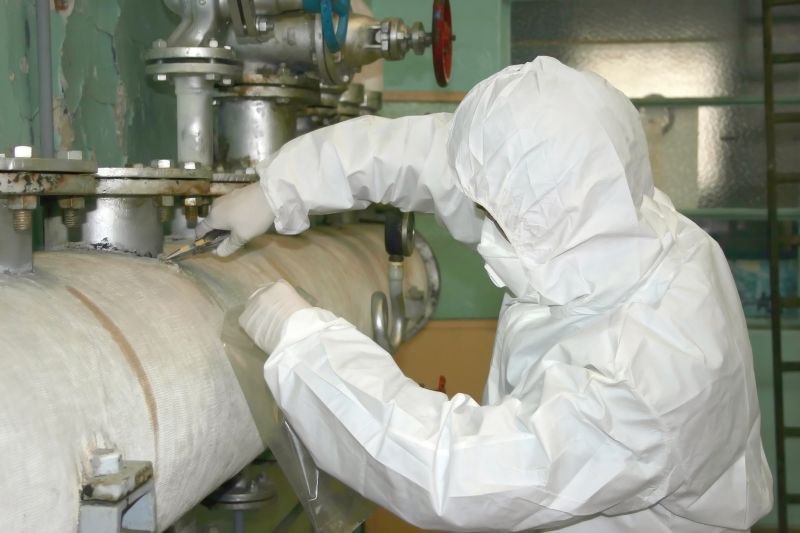Top-Rated Asbestos Testing Devices For Homeowners
Find the most effective tools to perform safe and precise asbestos testing in residential and commercial spaces.
 When it comes to assessing potential asbestos presence in building materials or environments, selecting the right testing products is essential for accurate results and safety assurance. Asbestos testing products come in various forms, including kits for DIY testing, laboratory sampling supplies, and specialized detection devices. These tools enable users to collect samples safely and efficiently, which can then be analyzed either at home or by professional laboratories. Proper sampling and testing procedures are critical to ensure valid results, especially given the health risks associated with asbestos exposure.
When it comes to assessing potential asbestos presence in building materials or environments, selecting the right testing products is essential for accurate results and safety assurance. Asbestos testing products come in various forms, including kits for DIY testing, laboratory sampling supplies, and specialized detection devices. These tools enable users to collect samples safely and efficiently, which can then be analyzed either at home or by professional laboratories. Proper sampling and testing procedures are critical to ensure valid results, especially given the health risks associated with asbestos exposure.
Top Overall Option
Comprehensive Asbestos Testing Kit
This all-in-one testing kit provides everything needed for safe sample collection and preliminary analysis. It includes protective gear, sample containers, detailed instructions, and a guide for submitting samples to certified labs. Designed for DIY enthusiasts and professionals alike, it offers a reliable starting point for asbestos detection with user-friendly features. While it does not replace professional laboratory analysis, it facilitates initial screening and helps inform further steps for safety and compliance.
Types of Products For Asbestos Testings
DIY Asbestos Test Kits
Complete kits for home sampling and initial detection, often including protective gear and sample containers.
Laboratory Sample Collection Kits
Supplies designed for collecting and transporting samples to certified laboratories for detailed analysis.
Portable Asbestos Detectors
Handheld devices capable of providing real-time detection or indication of asbestos fibers in the environment.
Fiber Counting Microscopes
Specialized microscopes used by professionals to count asbestos fibers in collected samples.
Air Quality Test Pumps
Devices that draw air samples for laboratory analysis to detect airborne asbestos fibers.
Bulk Material Sampling Tools
Tools designed for extracting samples from building materials like drywall, insulation, or flooring.
Sampling Swabs and Wipes
Disposable wipes and swabs for surface sampling in suspected asbestos-containing areas.
Protective Clothing and Masks
Personal protective equipment essential for safely handling asbestos samples.
Sample Transport Containers
Secure, contamination-proof containers for sending samples to labs.
Asbestos Test Strips
Quick, visual testing strips that indicate the presence of asbestos fibers in samples or air.
Environmental Testing Kits
Complete kits for testing air, surface, and bulk materials for asbestos contamination.
Professional Inspection Tools
Advanced equipment used by certified inspectors for detailed asbestos surveys.
Sample Labeling and Documentation Supplies
Labels, forms, and documentation tools to ensure proper sample tracking and reporting.
Infrared and Spectroscopy Devices
Specialized instruments for identifying asbestos fibers through advanced analytical methods.
Environmental Air Monitors
Continuous monitoring devices for detecting airborne asbestos fibers over time.
Popular Choices
Affordable and easy-to-use kits suitable for initial screening of suspected materials.
Reliable supplies for collecting samples to be analyzed by certified labs.
Convenient handheld devices for quick environmental assessments.
Devices used for collecting air samples in suspected asbestos zones.
Tools for professionals to analyze samples with precision.
Simple surface sampling tools for preliminary inspections.
Essential safety gear for handling asbestos materials.
Secure containers for sending samples to laboratories.
Quick indicators for the presence of asbestos fibers.
All-in-one solutions for comprehensive asbestos testing.
Advanced tools for fiber identification in laboratory settings.
Devices that track airborne asbestos levels continuously.
Many testing kits include detailed instructions, sample containers, and protective gear to facilitate safe collection. Some kits are designed for quick, preliminary screening, providing a basic indication of asbestos presence, while others are more comprehensive, suitable for detailed analysis. For those who prefer a more hands-on approach, portable detection devices may offer real-time readings and ease of use. It's important to understand the scope and limitations of each product type to choose the most appropriate for your specific needs.
In addition to sampling kits and detection devices, there are also supplies for professional asbestos testing laboratories, such as sample transport containers and lab submission forms. Whether conducting a DIY test or working with a certified lab, ensuring that samples are collected and stored correctly helps maintain accuracy. Always follow safety guidelines when handling materials suspected to contain asbestos, and consider consulting with professionals if uncertain. Proper testing is a vital step in identifying asbestos and making informed decisions about renovation, demolition, or remediation projects.
Key Buying Considerations
- Type of testing product (DIY kit, lab sampling, detection device) suitable for your needs.
- Ease of use and clarity of instructions, especially for DIY kits.
- Safety features included, such as protective gear and safe sampling tools.
- Sample collection and transportation requirements to ensure accuracy.
- Compatibility of the product with professional laboratory analysis if needed.
- Detection sensitivity and whether the product is designed for preliminary screening or detailed analysis.
- Portability and ease of use for on-site assessments.
- Cost considerations relative to the scope and accuracy of the test.
- Availability of customer support and detailed instructions.
- Product reviews and ratings to gauge reliability and user satisfaction.
- Compliance with relevant safety standards or certifications.
- Shelf life and storage requirements for testing supplies.
- Compatibility with different types of materials and environments.
- Potential need for calibration or professional interpretation of results.
- Overall safety precautions for handling and sampling asbestos-containing materials.
This content may contain affiliate links. We earn commissions to support our efforts in providing helpful information.
